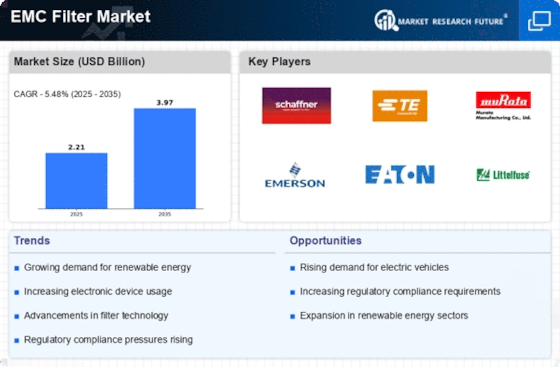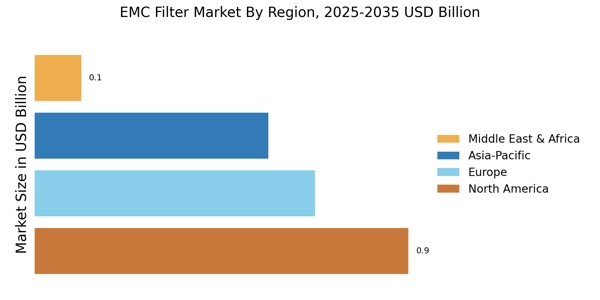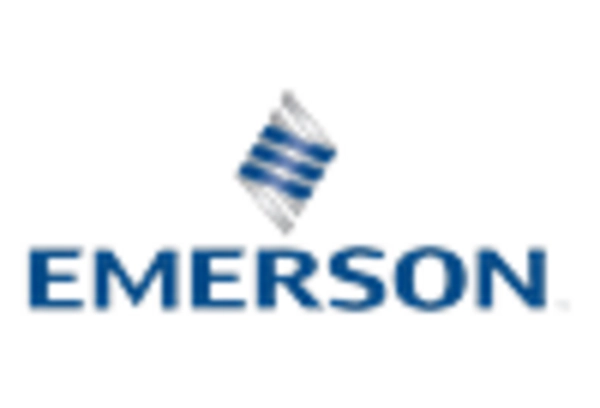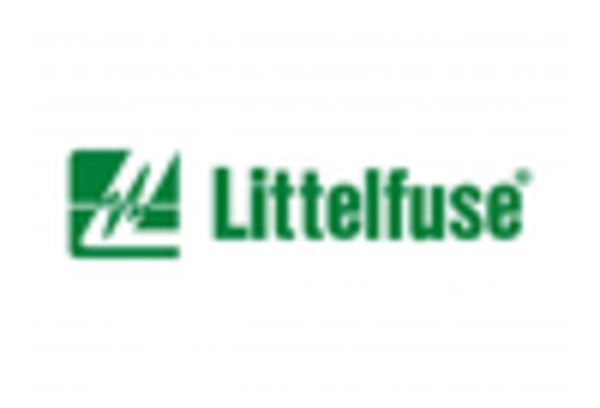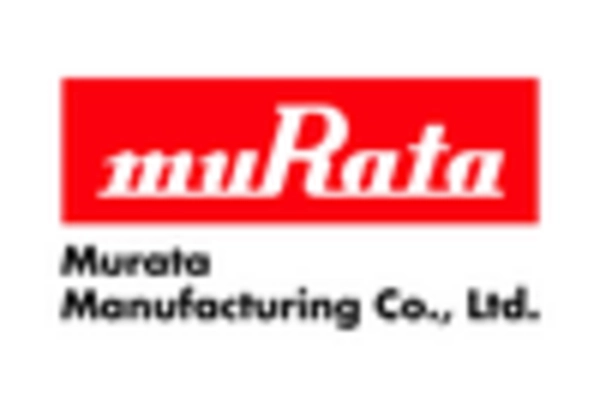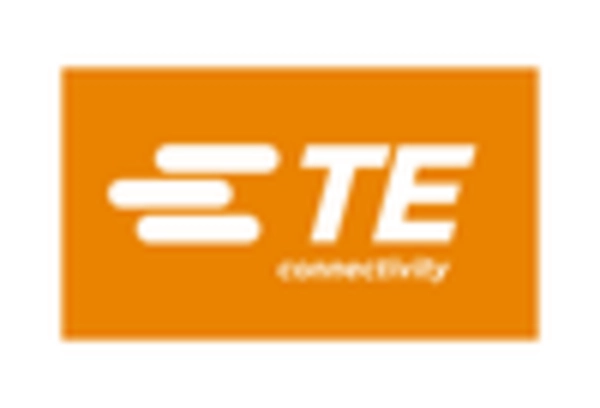Growth in Renewable Energy Sector
The expansion of the renewable energy sector is emerging as a significant driver for the EMC Filter Market. As the world shifts towards sustainable energy solutions, the integration of renewable energy sources such as solar and wind power necessitates the use of EMC filters to ensure system stability and performance. In 2025, the market is expected to benefit from the increasing deployment of renewable energy systems, which often involve complex electronic components susceptible to electromagnetic interference. The need for reliable filtering solutions in these applications is likely to propel the demand for EMC filters, as manufacturers aim to enhance the efficiency and reliability of renewable energy systems. This trend underscores the critical role of EMC filters in supporting the transition to cleaner energy sources.
Increasing Electronic Device Usage
The proliferation of electronic devices across various sectors appears to be a primary driver for the EMC Filter Market. As consumer electronics, industrial machinery, and telecommunications equipment become more prevalent, the need for effective electromagnetic compatibility solutions intensifies. In 2025, the demand for EMC filters is projected to grow significantly, driven by the increasing complexity of electronic systems. This complexity necessitates robust filtering solutions to mitigate electromagnetic interference, ensuring device reliability and performance. The EMC Filter Market is likely to witness a surge in demand as manufacturers prioritize compliance with stringent regulations regarding electromagnetic emissions. Consequently, the integration of advanced filtering technologies into electronic devices is expected to enhance product quality and consumer satisfaction.
Regulatory Compliance and Standards
The stringent regulatory landscape surrounding electromagnetic emissions is a crucial factor influencing the EMC Filter Market. Governments and regulatory bodies have established comprehensive standards to limit electromagnetic interference, compelling manufacturers to adopt EMC filters in their products. In 2025, the market is likely to experience growth as companies strive to meet these compliance requirements. The implementation of standards such as IEC 61000 and CISPR 22 necessitates the integration of effective filtering solutions, thereby driving demand for EMC filters. This regulatory pressure not only ensures product safety and reliability but also fosters innovation within the EMC Filter Market as manufacturers seek to develop advanced filtering technologies that comply with evolving standards.
Rising Demand in Automotive Applications
The automotive sector's increasing reliance on electronic systems is a notable driver for the EMC Filter Market. As vehicles become more technologically advanced, incorporating features such as advanced driver-assistance systems (ADAS) and electric powertrains, the need for effective electromagnetic compatibility solutions intensifies. In 2025, the market is expected to grow as automotive manufacturers prioritize the integration of EMC filters to ensure the reliability and safety of electronic components. The automotive industry is likely to face stringent regulations regarding electromagnetic emissions, further driving the demand for filtering solutions. This trend highlights the critical role of EMC filters in supporting the automotive sector's transition towards electrification and enhanced connectivity.
Technological Innovations in Filtering Solutions
Technological advancements in filtering solutions are poised to drive the EMC Filter Market forward. Innovations such as the development of high-frequency filters and adaptive filtering technologies are enhancing the performance and efficiency of EMC filters. In 2025, the market is likely to witness an influx of new products that leverage these advancements, catering to the evolving needs of various industries. The introduction of smart filters that can dynamically adjust to changing electromagnetic environments may significantly improve the effectiveness of filtering solutions. This trend not only addresses the growing complexity of electronic systems but also positions the EMC Filter Market as a hub for technological innovation, attracting investments and fostering competition among manufacturers.

